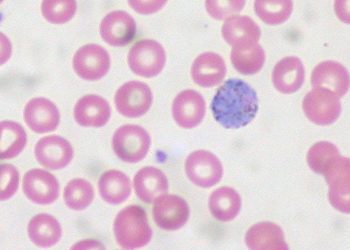Brain drain from sub-Saharan Africa to US worsening
Image: PD
1. Over the last decade, physician emigration from sub-Saharan Africa (SSA) to the US has increased by 38%.
2. In Liberia, the country most affected by migration of its physicians to the US, 77% of physicians trained in the country were working in the US by 2011.
Evidence Rating Level: 2 (Good)
Study Rundown: Countries rich and poor are currently facing a shortage of healthcare professionals. The physician shortage is particularly severe in many Sub-Saharan African (SSA) countries; in 2008, the US had an average of 242 physicians per 100,000 compared to 16 in Sierra Leone and 2.5 in Ethiopia. Overall, SSA contains 2% of the physician workforce but a quarter of the global burden of disease. Given these inequities in physician distribution, the emigration of physicians from SSA to high-income countries such as the US is particularly concerning. In their examination of the “brain drain,” these researchers found that migration trends among SSA-trained physicians have increased over the last decade; in many cases, over half of a country’s physicians are now working in the US. Since this study only identifies SSA-trained physicians who qualify for a US residency position, it fails to capture the many physicians who are currently working in jobs incommensurate with their medical training (so-called “brain waste”) and therefore underestimates the problem. Further research is needed to determine to what extent these emigration patterns are driven by “pull” factors from high-income countries (eg recruiting tactics to fill positions in underserved areas) vs “push” factors from low-income countries (eg poor job satisfaction in countries of origin). With this information, policy makers may formulate strategies to address global inequities in physician distribution.
Click to read the study in PLOS Medicine
Click to read an accompanying editorial in PLOS Medicine
Relevant Reading: Medical schools in sub-Saharan Africa (The Lancet)
In-Depth [retrospective study]: This study analyzed data on physicians trained or born in sub-Saharan Africa (SSA) who currently practice in the US. Drawing from the WHO Global Health Workforce Statistics and the 2011 American Medical Association Physician Masterfile, the authors estimated emigration proportions, year of US entry, years of practice before emigration, and length of time in the US. In 2011, there were 10,819 physicians born or trained in 28 SSA countries. Comparing 2011 data to 2002 demonstrated a 38% increase in SSA medical graduates practicing in the US. Though Nigeria accounted for most of this increase, US immigration among SSA-trained physicians increased in all countries examined except South Africa, which experienced an 8% decrease in emigration. Liberia was most affected by the migration of its physicians; an estimated 77% of its 226 physicians worked in the US in 2011. SSA international medical graduates (IMGs) had been in the US for an average of 18 years and practiced in their native country 6.5 years prior to emigrating.
More from this author: Outreach increases colorectal cancer screening among underserved; Clinical impression not reliable in identifying drug-seeking behavior; Industry influences on expert panels contribute to over-diagnosis; Undervaccination becoming more common, associated with increased patient admission rates; Overuse of colonoscopy widespread in the US; Silent myocardial infarctions more common than previously assumed
© 2013 2minutemedicine.com. All rights reserved. No works may be reproduced without expressed written consent from 2minutemedicine.com. Disclaimer: We present factual information directly from peer reviewed medical journals. No post should be construed as medical advice and is not intended as such by the authors, editors, staff or by 2minutemedicine.com. PLEASE SEE A HEALTHCARE PROVIDER IN YOUR AREA IF YOU SEEK MEDICAL ADVICE OF ANY SORT.









